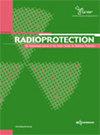平衡精确性和安全性:放射学辐射剂量优化的关键要求和注册医学物理师在质量评估中的作用
IF 1.4
4区 医学
Q4 ENVIRONMENTAL SCIENCES
引用次数: 0
摘要
本综述系统研究了 2023 年 12 月至 2024 年 4 月期间放射成像协议和实践的优化情况。通过严格的筛选过程,我们从 PubMed、Scopus 和 Web of Science 等数据库中找到了 97 篇相关文章和报告。筛选标题和摘要后,对符合纳入标准的文章全文进行了全面评估,最终得出了 63 项用于定性分析的研究。数字射线摄影、乳腺摄影、透视和介入放射学的进步重塑了成像技术。传统方法在数字工具和算法的辅助下优化了成像效果,同时最大限度地减少了辐射暴露。乳腺 X 射线超低剂量成像等创新技术旨在通过减少辐射来提高癌症检测能力。透视和介入放射学中的优化涉及到一种细致入微的方法,既要考虑设备协议,又要考虑操作人员的行为。医学物理学家和优化团队之间的合作使协议与设备功能保持一致。ISO 定义的质量管理原则通过质量控制和保证等环节指导放射科建立质量体系。剂量测定可监控设备性能并估算个性化辐射风险,从而确保患者安全。绩效指标有助于评估科室绩效,由医学物理学家推动指标的制定和监测。包括人工智能和治疗学在内的合作计划和新兴技术突显了放射科剂量优化的持续发展。这些战略将塑造放射成像的未来,实现个性化的患者护理,并促进我们对健康和疾病的了解。本文章由计算机程序翻译,如有差异,请以英文原文为准。
Balancing precision and safety: the crucial imperative of radiation dose optimization in radiology and the role of certified medical physicists in quality assessment
This review systematically examines the optimization of radiological imaging protocols and practices from December 2023 to April 2024. Through a rigorous selection process, 97 relevant articles and reports were identified from databases like PubMed, Scopus, and Web of Science. Screening of titles and abstracts, followed by a thorough evaluation of full-text articles meeting inclusion criteria, yielded 63 studies for qualitative analysis. Advancements in digital radiography, mammography, fluoroscopy, and interventional radiology have reshaped imaging techniques. Traditional methods, augmented by digital tools and algorithms, optimize imaging while minimizing radiation exposure. Innovations such as ultra-low-dose imaging in mammography aim to enhance cancer detection with reduced radiation. Optimization in fluoroscopy and interventional radiology involves a nuanced approach, considering both equipment protocols and operator behavior. Collaboration between medical physicists and optimization teams aligns protocols with equipment functionality. ISO-defined quality management principles guide the establishment of quality in radiology departments through components like quality control and assurance. Dosimetry monitors equipment performance and estimates individualized radiation risks, ensuring patient safety. Performance indicators help in assessing departmental performance, with medical physicists driving their development and monitoring. Collaborative initiatives and emerging technologies, including artificial intelligence and theranostics, underscore the ongoing journey of dose optimization in radiology. These strategies will shape the future of radiological imaging, enabling personalized patient care and advancing our understanding of health and disease.
求助全文
通过发布文献求助,成功后即可免费获取论文全文。
去求助
来源期刊

Radioprotection
ENVIRONMENTAL SCIENCES-PUBLIC, ENVIRONMENTAL & OCCUPATIONAL HEALTH
CiteScore
3.30
自引率
54.50%
发文量
35
审稿时长
>12 weeks
期刊介绍:
Radioprotection publishes articles on all aspects of radiological protection, including non-ionising as well as ionising radiations. Fields of interest range from research, development and theory to operational matters, education and training. The very wide spectrum of its topics includes (theoretical and practical aspects): dosimetry, instrument development, specialized measuring techniques, epidemiology, biological effects (in vivo and in vitro) and risk and environmental impact assessments.
 求助内容:
求助内容: 应助结果提醒方式:
应助结果提醒方式:


